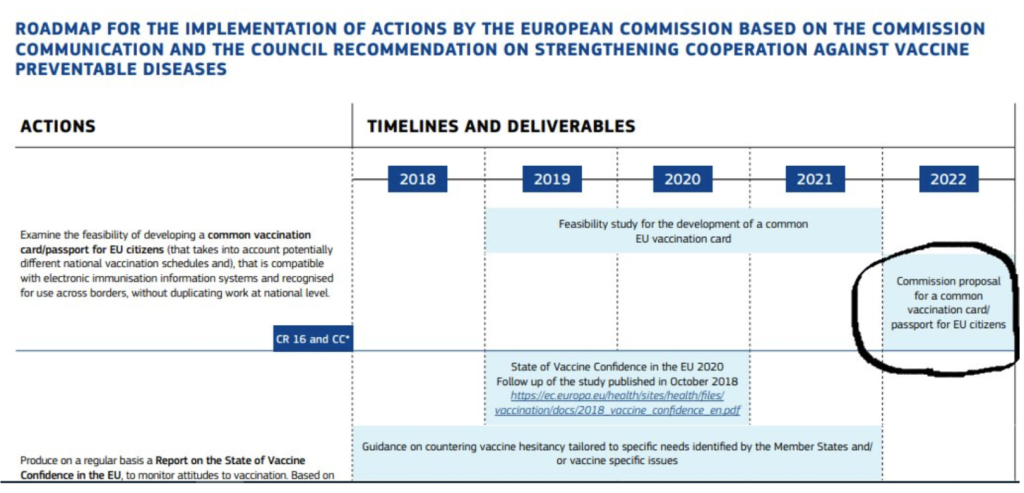
Continuing plans for digital ID
Since the inception of HART, an absolutely core part of our earliest commentary has been critical review of plans to implement vaccine certification. This was first mentioned in our March 2021 Dossier of Evidence as a review of the ethical minefield and was followed up by numerous articles criticising subsequent policy decisions that have been made both here and abroad. The totally unnecessary implementation of ‘Plan B’ in the UK back in December 2021 was a good (i.e. effective not moral) example of the incremental — and totally unjustified — introduction of hitherto unacceptable intrusions on the fundamental tenets of Western society.
These developments have been tough medicine for those of us that — prior to March 2020 — has assumed that supra-national authorities were perhaps benignly incompetent and (over time) self-correcting. Perhaps we should have been somewhat more suspicious. It looks like 2022 had long been the date of a proposed introduction of an EU vaccination passport:

This timetable and further information can be found in this set of questions and answers between the EU Parliament (elected members) and the Commission (appointed technocrats), which lays bare the utterly transparent and fallacious justification of implementing a mandated vaccine passport on the pretext of “strengthened cooperation against vaccine-preventable diseases”. Breezy assurances that the “regulation on the certificate and its use is limited in time and will apply from 1 July 2021 to 30 June 2022” only further undermine the Commission’s innocent protestations when — true to form — these ridiculous policies are extended (of course) for thine own especial safety.
These updated plans from the EU Commission for ‘responding to Covid’ are a sorry tale of gaslighting and unjustified executive overreach, and have been comprehensively critiqued elsewhere. The fawning hero-worship afforded the pharmaceutical companies that have profited from injection mandates in this document is perhaps precisely what one might have expected from an organisation whose President is under investigation for her role in the procurement of these injection materials. It is no surprise that the EU chooses to trot out the imbecilic argument that “their successful roll-out has saved around 20 million lives worldwide during their first year” which we comprehensively repudiated back in July when modellers at Imperial first made this claim.
These sinister technocratic developments are of great concern. It is important not to be distracted by headline-grabbing developments within the EU’s member states, such as the comical antics of the likes of Karl Lauterbach, the German Health Minister, who is operating within the confines of a self-inflicted energy crisis overseen by a haplessly triangulated 3-party ‘traffic light’ coalition government.
We never want to talk about this topic ever again. But it seems we must. And — until these crazy plans are stymied once and for all — we will.

